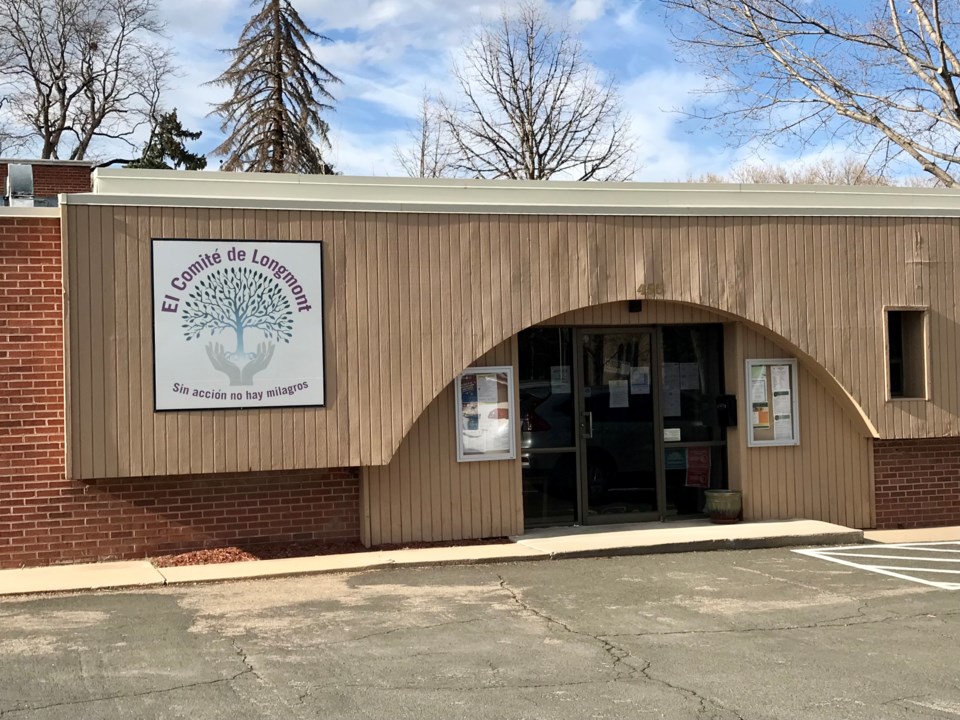El Comite de Longmont, a local nonprofit working to improve social justice, education and economic status for members of the community across Boulder County, recently received over $50,000 to support COVID vaccination efforts, according to Executive Director Donna Lovato.
The nonprofit secured $20,193 earlier this month from the Caring for Colorado Foundation through the Together We Protect — Colorado’s COVID-19 Vaccine Equity Fund — and just over $32,000 this week from Boulder County Public Health.
“Both grants are on their way and will be used for vaccine work,” Lovato said. “What we are doing is registering people (for the vaccine). We have the links to register, and even though they are open and people can register themselves, a lot of people who may have the technology, like a computer or a cellphone, they don’t know how to do it.”
Members from the Latino community, especially new immigrants, need support navigating the healthcare system, and El Comite is supporting through grassroots and outreach efforts that reach a significant portion, she said.
The organization sees on average 2,000 individuals walk through its doors every year and in busy months can have over 350 unique visitors, she said, adding its scope goes beyond the clients they directly support, reaching family, friends and neighbors who learn about available support second hand.
“Our Latino community doesn’t trust just anybody in the community,” she said. “When we are helping with anything, we are really careful with their information … We really look at what we need to do to help out. It’s always different (with each person) and we have to do it with respect for our gente (people).”
El Comite offers educational opportunities, such as English as a Second Language and citizenship classes, case management, translation and notary services, according to the website.
During COVID, the nonprofit leveraged its connections with the Latino community to ensure its members were adequately served in times of crisis and well-informed when it comes to the vaccine.
“We (Hispanic people) are the ones getting COVID at a higher rate, dying at a higher rate. The hard part for a lot of our gente is that they don't have insurance and wait until they are really, really sick, and it’s (the virus) already in their lungs and they die,” she said. “We need them to understand that there are clinics here, there’s a lot of resources we can help them with.”
Stephanie Wasserman, executive director for Immunize Colorado — a statewide nonprofit working to protect Colorado families, schools and communities from vaccine-preventable diseases — understands the need for targeted culturally sensitive approaches to ensure COVID and vaccine-related information reaches underserved communities.
“(Last year) we were really concerned about the deep impact COVID was having on communities of color, and how early polling was showing there was more hesitancy in communities of color about a future vaccine,” she said.
With the support of 50 stakeholders across Colorado, including elected officials, doctors, consumers and people with lived experience from highly impacted communities, Immunize Colorado launched a vaccine equity task force that eventually led to the formation of the Together We Protect — Colorado’s COVID-19 Vaccine Equity Fund, according to Wasserman.
Twelve foundations came together to create the vaccine fund, which awarded $2.51 million at the beginning of the month to 48 community-based nonprofit organizations, health clinics, and mental health centers across the state, according to a press release.
“With deep roots in the communities they serve and a history of providing culturally responsive and trusted information and services, these organizations are uniquely positioned to increase COVID-19 vaccine confidence and increase vaccination rates,” stated Linda Reiner, president and CEO of Caring for Colorado Foundation, in the press release. “We need to do all that we can to get people vaccinated both quickly and equitably.”
In addition to the grants, Together We Protect also partnered with Uber to distribute 21,000 free or discounted rides to Coloradans to reduce transportation barriers to accessing a Covid-19 vaccine, according to the press release.
All the organizations selected for this grant, including El Comite, have the opportunity to join a community of practice, which is a group of task force members and grantees where each can share their goals, objectives and lessons learned, and ask questions, Wasserman said.
“We will create a short learning opportunity for all grantees, for them to share resources, strategies, successes and challenges,” she said. Some of these organizations are small, and this way they (wouldn’t) have to duplicate efforts and can get additional support around communication and messaging.”
In communities of color, individuals are up to six times more likely to get COVID-19, be hospitalized and die from the virus than white counterparts, Wasserman said, adding even though over 20% of the state population is Latino, “only 8% of the shots given out have gone into arms of people who identify as Latinx, that’s really been the challenge and the opportunity for the funding.”
As of yesterday, in Boulder County 64% of residents have received at least one COVID-19 vaccine dose, with just over 31% of those identifying as Hispanic, according to county data.
“A COVID vaccination is the light at the end of the tunnel, it’s critically important if we want to get back to our lives, what our lives were like before the pandemic,” Wasserman said. “We need to make sure vaccines are accessible and easy to obtain for all Coloradans, especially in communities so profoundly affected by the pandemic.”



